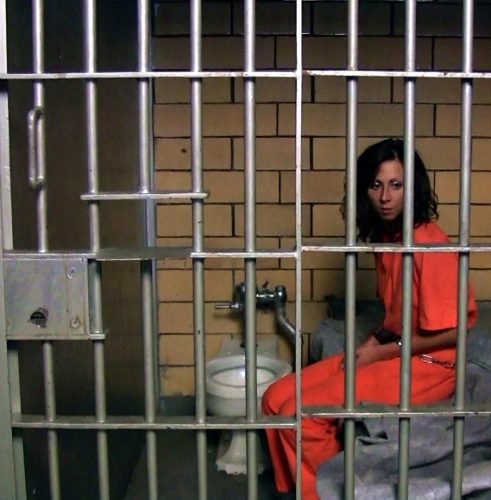

Via Wikimedia Commons

This work is licensed under a Creative Commons Attribution-ShareAlike 4.0 International License.
By Vaiva Utaraite
SACRAMENTO, CA – After a competitive process, Los Angeles, Imperial, San Diego and Sacramento counties will participate in the “Ending Girls’ Incarceration in California Action Network,” created and funded by the California Office of Youth and Community Restoration (OYCR) and Vera Institute of Justice.
The network will “address the race and gender inequities that fuel disparities and create unique pathways to incarceration for girls and gender expansive youth of color,” stated the Vera Institute press release.
Per the press release, these counties will work with the Vera Institute “to examine their local data, identify system and programming gaps, and implement policy and programming solutions to meaningfully reduce girls’ incarceration.”
Vera Institute said during the first year, the four counties will each receive a grant of $125,000 from the OYCR. Counties that demonstrate “clear and effective plans” are eligible to “receive two-year grants of up to $750,000 to continue this work beyond the first year,” which can go towards probation departments and community-based organizations stated the press release.
“These four counties demonstrated a strong commitment towards ending girls’ incarceration and addressing the race and gender disparities in their youth legal systems, and we look forward to partnering with them in this critical effort,” said Lindsay Rosenthal, director of the Initiative to End Girls’ Incarceration at the Vera Institute of Justice.
Girls’ incarceration in California currently “accounts for roughly 13 percent of the country’s long term commitments of girls,” according to the Vera press release, which noted, in California, “Latina and Black girls together account for 80 percent of girls’ admissions to detention, with Latina girls making up the majority of girls’ detentions,” which highlights a clear need for “systemic change.”
While there has been a “significant reduction in girls’ incarceration numbers over the past decade,” in 2021, “over 67 percent of girls’ arrests and over 45 percent of girls’ detention admissions” were for low-level offenses such as “curfew violations, skipping school or running away,” said Vera.
Given the susceptibility and fragile nature of youth, these types of offenses should be dealt with “through community-based alternatives,” rather than harsh punitive punishment, Vera added.
“The work to transform California’s youth justice system has been ongoing for decades, and we are meeting this movement with a historic investment to reform and redesign how we approach justice for girls and gender expansive youth,” said Judge Katherine Lucero, the director of the California Office of Youth and Community Restoration.
This program first came to California in 2019 to Santa Clara County and since then, there has been “a 60 percent drop in girls’ detention admissions,” said Vera.
By including the four counties in this program, the hope is that they will “become leaders for their peers in California and nationally,” said Lucero.
“It’s an important step towards realizing justice and freedom for girls and gender expansive youth of color, and we are excited to see the momentum build among youth legal system leadership in California—a state that has always played an important role in youth legal reform,” stated Rosenthal.